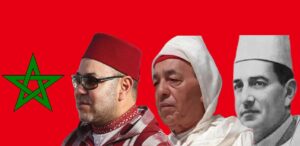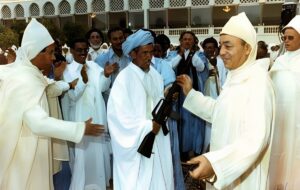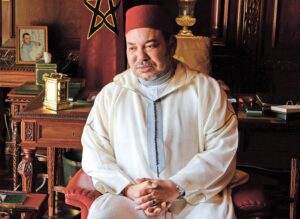The Era of Mohammed VI... Second: Security Fortification... The Cornerstone of Political, Economic, and Social Success
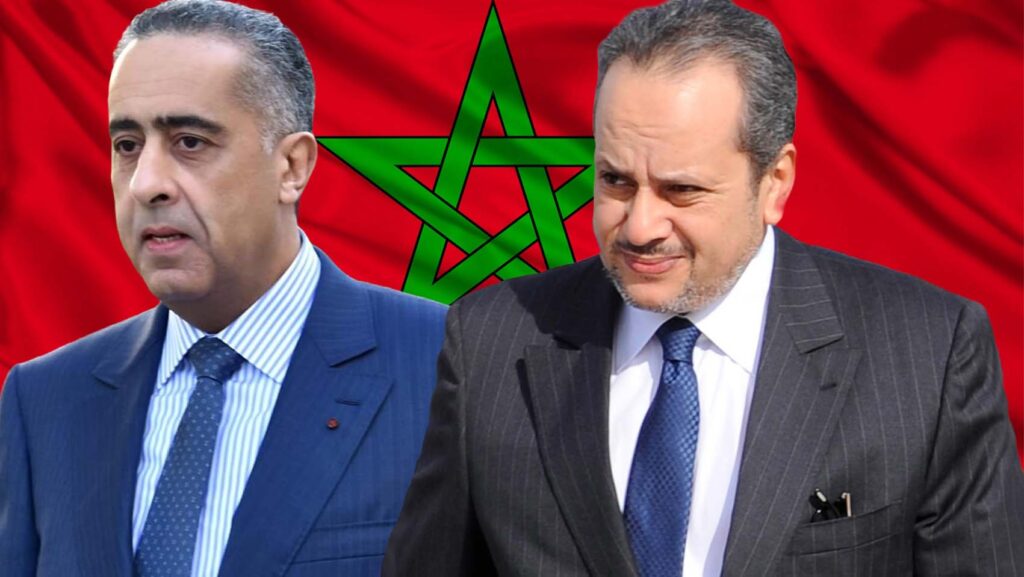
In military doctrine, those defending their country cannot place their first line of defense (no matter how strong this line is) within their national borders, because that makes them “exposed” to targeting and attrition, and vulnerable to a siege that is bound to yield results over time. This fact may serve as a basis for understanding one of the most important concepts and pillars of the “Age of Mohammed VI”! And because security fortification is a concept that encompasses the external and internal security of the Sharifian Kingdom, it was imperative to give this aspect the utmost importance, no less important than the importance of building the Moroccan economy and diplomacy. Indeed, we can perhaps say that the security aspect is a condition for success in all other aspects. How so?!
A country with the ambition of the "Sharif Kingdom" is more aware than any other party of the magnitude of the international dangers threatening it, in a world where status and importance are not granted based on personal relationships, but rather are snatched from the fangs of the lions (and hyenas) of international politics. For Morocco to be qualified to participate with the "big boys" in the international arena, it was necessary for it to be immune to the ambitions of these same countries and to become resistant to predation. This is what the Moroccan security services (both internal and external) have undertaken with competence and competence, in addition, of course, to the armed forces, which place this mission (protecting the homeland) at the top of their list of priorities. If we want to go into more detail, we will attempt - theoretically - to separate the external and internal security of the Kingdom, to further clarify the concept.
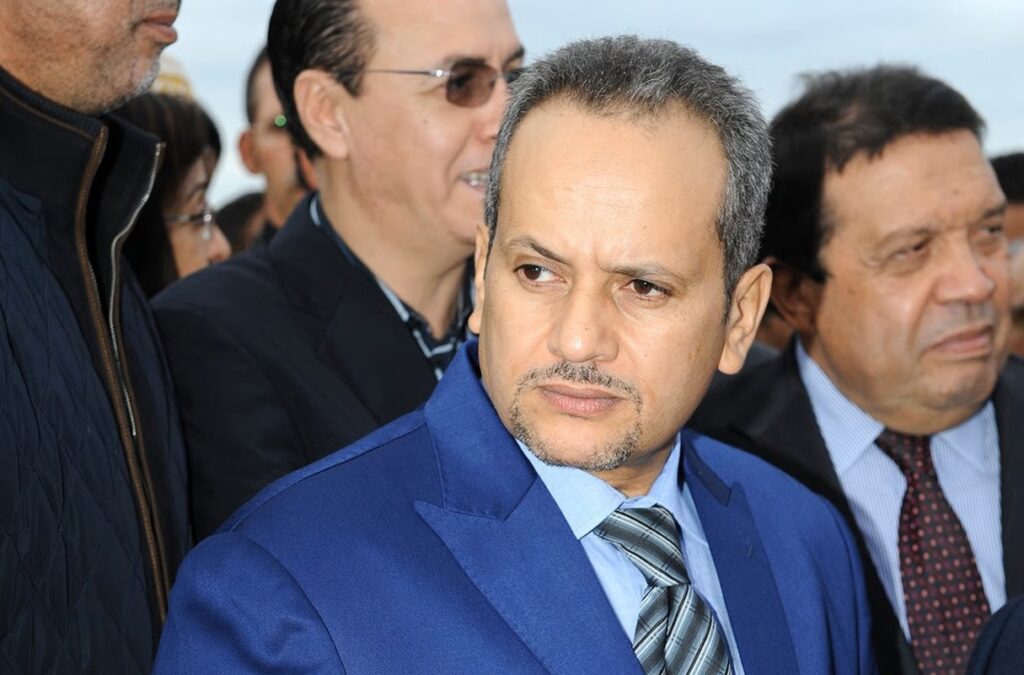
During the "era of Mohammed VI," under the leadership of its current director, Mohamed Yassine Mansouri (who has held the position since 2005), the External Security Agency (ESA) has constituted what can be called Morocco's "first line of defense" in terms of security, and simultaneously its "first line of attack" diplomatically. With this dual function, most waves of threats to Morocco's internal security are broken outside its national borders, before the internal security authorities take over and eliminate those who succeed in penetrating, in an era of "lone wolves" and terrorist technical know-how available online. A similar role is played by the internal security authorities, with their proactive doctrine, to the point of demonstrating complete harmony between the two agencies (internal and external), despite the distinct nature of the files each party handles. The only area of competition—permitted—remains competition in "protecting the homeland."
For King Mohammed VI, "stability" is the key to the success of institutions, especially the security sector. Thus, the heads of the external and internal security services are officials who have held their positions for twenty years (while Algeria, for example, has changed the heads of its external security service eleven times during the same period, and the heads of its internal security service ten times!!). Perhaps the most significant benefit of stability in the external and internal security services, in addition to building what can be termed an "institutional culture," is the formation of professional relationships with similar agencies worldwide, which is one of the conditions for success in this field. This last meaning is embodied in the international standing of the Moroccan security services, to the point that their services are a pressing requirement for securing the World Cup in Qatar and the Paris Olympics (among other events), in addition to the numerous requests for international assistance in the release of hostages held by terrorist groups operating in the Sahara. Perhaps what has increased the world's respect for the Moroccan security services is that their "security intelligence services" are not limited to the citizens of major powers such as France and Spain. Rather, their interventions have benefited countries such as Sri Lanka, Romania, and "other Third World countries," earning them the respect of the entire world.
The expansion of the scope of the External Security Service's mandate to include the issue of territorial integrity, given its in-depth knowledge of the situation within the African continent, country by country, has contributed to significant strides in withdrawing recognition of the fictitious "Tindouf Republic." Thus, the interventions of the External Security Service have become one of the most important tools of Moroccan "diplomacy," a "mine sweeper" along the way. Here, this service and its chief can rightly boast that, over two decades, they have contributed to a decline in support for the Algerian thesis to a "theoretical" 15 African countries, of which only seven still maintain a "public" hostile discourse regarding Morocco's sovereignty over its Sahara. The same situation exists in Latin America, where, of the eight countries that still theoretically support the Polisario's thesis, only two have an ideological hostility. As for Asia, the three countries that theoretically support the Polisario remain unchanged (Laos, North Korea, and East Timor), with the former attempting to adopt balanced positions. In other words, of the world's 193 countries, no more than ten of its allied countries have publicly supported Algeria's thesis, even though the theoretical number of those recognizing the Polisario is 26, which is a small number in any case.
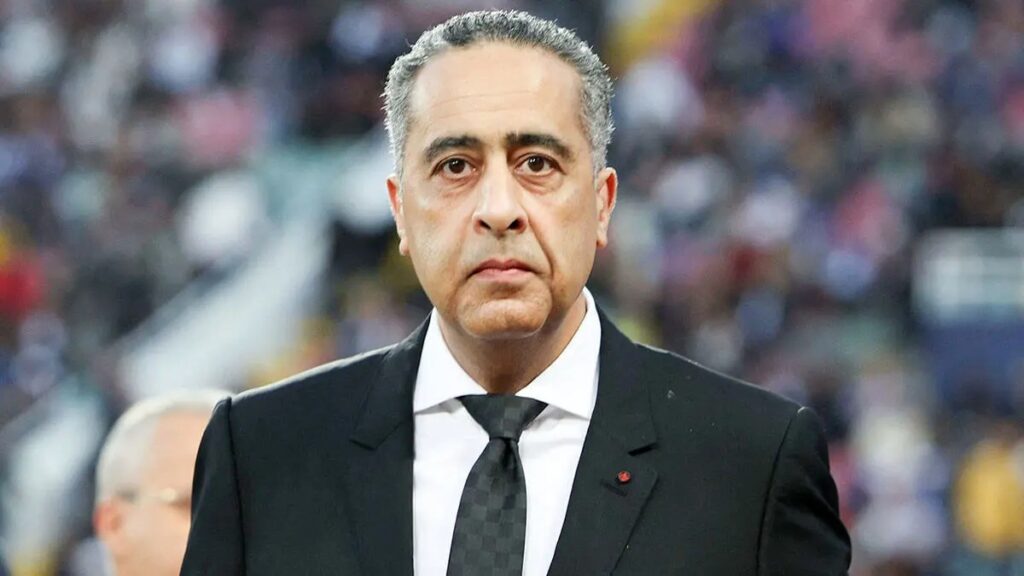
The same successes achieved by the external intelligence service under the leadership of Mansouri are achieved by its internal counterpart under the leadership of Abdellatif Hammouchi, and the reason is simple: there is one “maestro” for this Moroccan symphony, and that is King Mohammed VI, who, in order to enrich the melody, combines many musical instruments in his “orchestra,” but with a very carefully calculated harmony, and with interventions planned in size and time, sometimes giving ample space for one of the instruments to present a solo, while the rest of the instruments fall silent, and at other times the sounds of all the instruments intermingle without “dissonance,” to present a world-class melody and nothing is more wonderful!
Security successes, not only domestically but also at the continental and international levels, have established Morocco as an undisputed international partner and leader in the fight against terrorism. The ambition of other global security agencies is to maintain a close relationship with their Moroccan counterparts, which makes the selection of Hammouchi as Interpol's vice president for Africa a "no-brainer" that requires no justification.
This internal security stability has bolstered the political stability Morocco has experienced over the past three decades, making the country a natural candidate to embrace global investments in various fields, in addition to its economic credentials. The fruits of Morocco's security efforts beyond its borders are being reaped in terms of diversifying its international partnerships, serving its national cause, consolidating its continental leadership, developing its economic performance, and strengthening its soft power. These are successes that the "shadow" men of the Moroccan security services, regardless of their specializations, can rightly be proud of having contributed to, without fanfare, and with the same "modesty of the great" that is considered one of the most important characteristics of the "Moroccan imperial personality"!!



